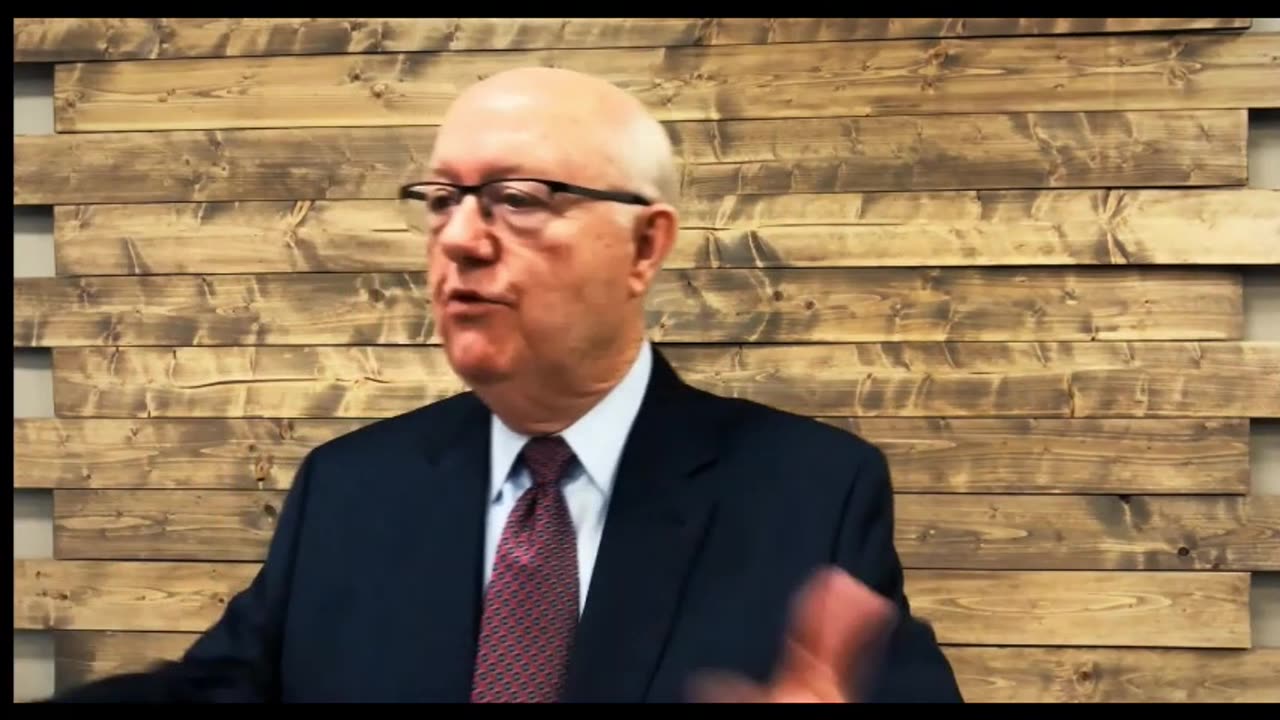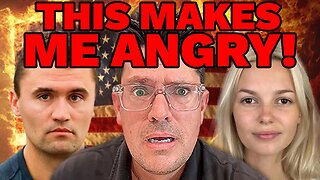Premium Only Content

Michaiah #video #God #religion #prophet #bible
The account of Micaiah the prophet in 1 Kings 22:1–38 (and in the parallel passage, 2 Chronicles 18:1–27) calls attention to the conflict surrounding prophecy in ancient Israel. When Ahab ruled over Israel and Jehoshaphat over Judah, the two kings decided to come together to attack the city of Ramoth-Gilead to retake it from the Arameans. Before going to battle, they consulted with more than 400 royally appointed counselors of Israel. These were apostate prophets who had no regard for correctly delivering the word of the Lord. To please King Ahab and obtain his favor, these prophets only served to tell the king what he wanted to hear.
The counselors brought before Ahab all prophesied victory in battle, but King Jehoshaphat remained suspicious. He wanted to hear from an independent prophet who would be faithful to the word of the Lord. Ahab offered to seek the counsel of Micaiah but warned Jehoshaphat that he hated this prophet. The reason? Micaiah always predicted evil for Ahab. An evil king is bound to receive bad news from God, so, if Micaiah was true to his calling, he could do nothing but deliver “evil” messages to Ahab. So Ahab hated him.
At Jehoshaphat’s insistence, Micaiah was summoned, and the messenger sent to bring the prophet pleaded with Micaiah to fit in with the crowd for once: “Look, the other prophets without exception are predicting success for the king. Let your word agree with theirs, and speak favorably,” he said (1 Kings 22:13). The honorable Micaiah said in reply, “As surely as the Lord lives, I can tell him only what the Lord tells me” (verse 14).
Standing before the two kings, Micaiah at first mockingly told Ahab what he wanted to hear, forecasting good news of victory over the Arameans. But Ahab, knowing Micaiah’s sarcasm, made him swear to tell the truth, and Micaiah told the wicked king what God really had to say. The prophet’s report was devastating: “I saw all Israel scattered on the hills like sheep without a shepherd, and the LORD said, ‘These people have no master. Let each one go home in peace’” (1 Kings 22:17).
Micaiah went on to tell King Ahab that a deceiving spirit had misled the other prophets to predict victory so that Ahab would die in the battle. So angry was Zedekiah, the leader of the royal prophets, that he struck Micaiah on the cheek and publicly mocked his prophecy. In response, Micaiah prophesied Zedekiah’s eventual destruction (2 Chronicles 18:24). King Ahab had Micaiah put in prison until he returned from battle. As he was being led away, Micaiah issued a final, urgent warning: “If you ever return safely, the Lord has not spoken through me. . . . Mark my words, all you people!” (1 Kings 22:28). The kings did not believe him, but Micaiah had spoken the truth of God. King Ahab was killed in the fighting, just as Micaiah had predicted.
Nothing more is said of the prophet Micaiah in the Bible. His courage in the face of intense political and professional pressure stands as a model for us. His truth-telling led to persecution, but his words came to pass, being as they were a message from God. Micaiah, a man of integrity, is surely one of the prophets spoken of in the Bible’s “Hall of Faith”: “Some faced jeers and flogging, and even chains and imprisonment. . .They went about in sheepskins and goatskins, destitute, persecuted and mistreated—the world was not worthy of them” (Hebrews 11:36–38).
-
 11:34
11:34
The Kevin Trudeau Show Limitless
3 days agoClassified File 4 | The Hidden Science of Brain Control REVEALED!
60.8K13 -
 2:17:41
2:17:41
Side Scrollers Podcast
23 hours agoCharlie Kirk’s Assassin in Custody + Asmongold Declares War + More | Side Scrollers
45K94 -
 33:32
33:32
ZeeeMedia
1 day agoKidnapping Cover-Up, Unvaxxed Kids Healthier, EU's New World War | Daily Pulse Ep 105
38.6K31 -
 11:04
11:04
Nate The Lawyer
3 days ago $10.80 earnedJudge, Mayor & 13 Democrats Arrested In Massive Mail-In Voter Fraud Scandal
43K47 -
 50:15
50:15
daniellesmithab
1 day agoKick-Starting Careers for Young Albertans
34.4K2 -
 39:01
39:01
Stephen Gardner
19 hours ago🔥This Will Leave You FURIOUS... What’s Really Going On?
95.2K150 -
 19:33
19:33
DeVory Darkins
21 hours ago $15.25 earnedBREAKING: Charlie Kirk's shooter in custody after making chilling confession
57.2K170 -
 2:12:43
2:12:43
TimcastIRL
14 hours agoErika Kirk Addresses Public After Charlie Kirk Assassination, Live Coverage | Timcast IRL
455K462 -
 30:59
30:59
The Charlie Kirk Show
14 hours agoCharlie Kirk's beloved wife, Mrs. Erika Kirk addresses the Nation.
609K1.81K -
 1:53:28
1:53:28
Man in America
22 hours agoLIVE: Assassin Arrested? Civil War? Are We Being Played?? | LET'S TALK
137K226